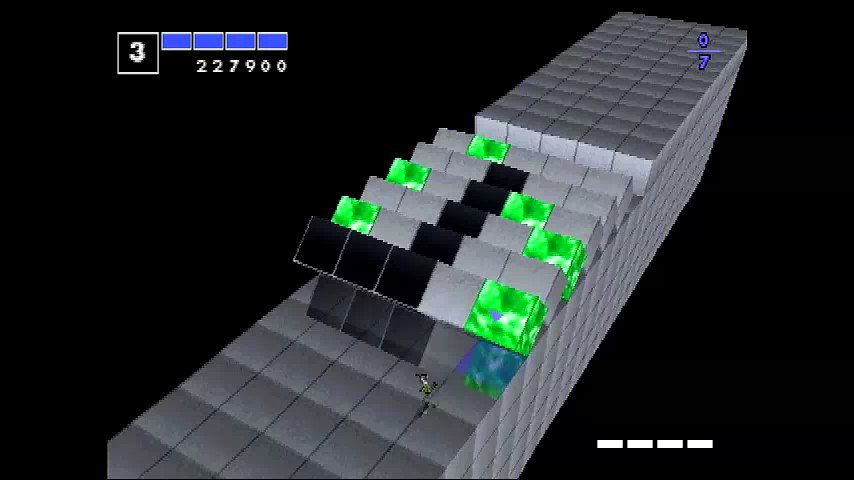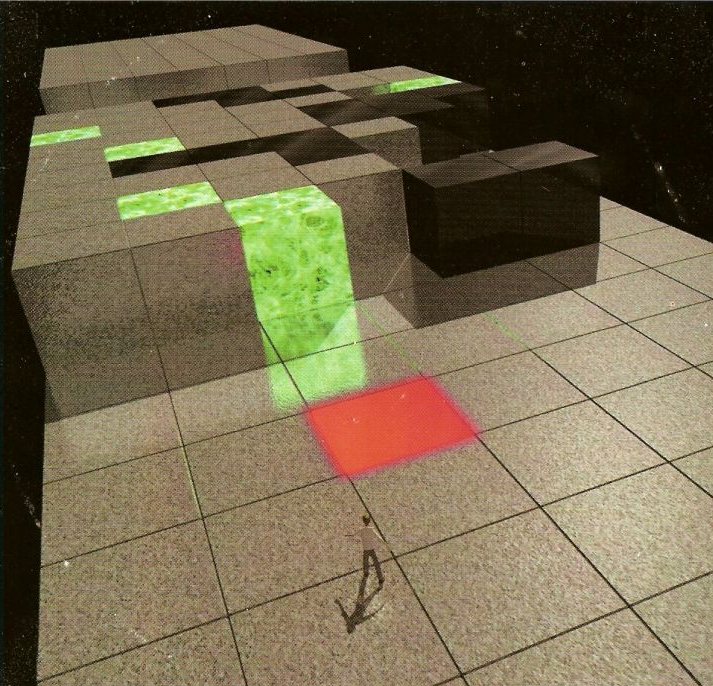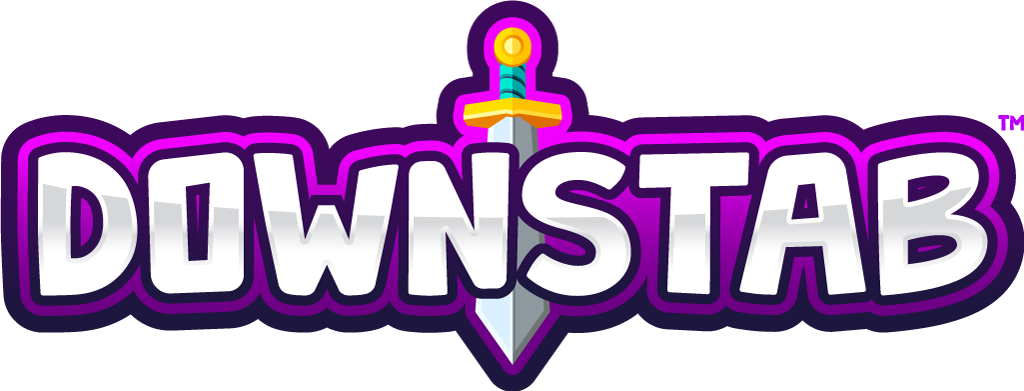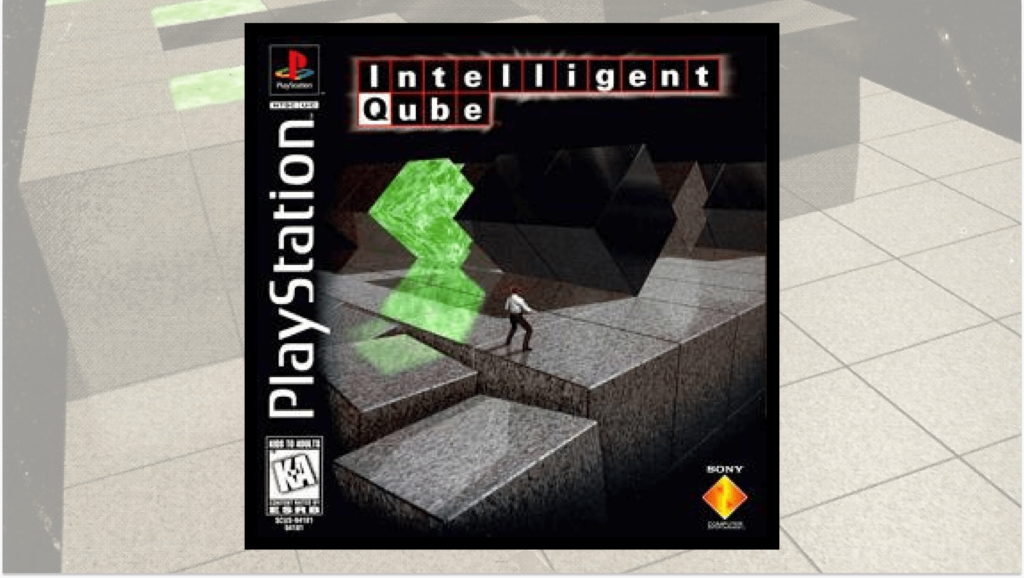Puzzle games are great. They challenge your mind in unique ways. Oftentimes there is some sense of accomplishment succeeding in one trial only to be brutally beaten down in the next, requiring you to try, try again. Replayability is a major factor for many puzzle games, from the retro style of Tetris to the more recent games like Candy Crush. Take any game player, retro, casual, hardcore, and newbie alike and chances are they have some type of puzzle game they enjoy.
Now imagine, if you will, a puzzle game that didn’t cut you any breaks. You’re thrown right in and expected to fend for yourself. Oh, you need some time to get your bearings straight? Too bad, timer starts now. What’s that? What exactly are you supposed to do in this game? Nope, death. IQ equals zero. And if you refuse to play at all, you’ll just plummet to your death in a vast pit of nothingness or you’ll be crushed to death by a 2-ton marble cube. In a nutshell, that’s PS1 puzzler Intelligent Qube.

My first introduction to this game was via a demo disc I played at a friends house. The demo had one, maybe two stages. I remember thinking at the time the visuals were so impressive. As in like, the greatest thing I had ever seen impressive. This was thanks in part to the Playstation’s graphical superiority to the SNES, which is the console I was primarily playing at the time. Also, with nothing else on-screen besides rolling blocks and a little dude in slacks running about, there isn’t exactly a lot of horsepower from backgrounds and staging. At the time of playing said demo I was maybe 10 years old, which means I was old enough to understand the basic idea of what was going on, but not old enough to truly grasp the mechanics of it all. Cubes looked cool and it was funny when I die was my basis for enjoyment back then.
I never did play the actual full version of Intelligent Qube for years. When I was just about done with college, my then-girlfriend Laura actually bought my copy of Intelligent Qube from a local used game store for my birthday. I was shocked when I opened that bag and saw it in there! First, how did she even know I wanted this game? Second, I couldn’t believe she went to the trouble to buy it. And third, how much did she spend on me, because even back in 2010 the game was still kind of pricey. But wow, was I excited to not only have the game in the collection, but to also finally be able to play the full version.

… and then I popped it in the console and proceeded to get absolutely no where with it. The game was just as tough as it was 10+ years prior! Largely that’s due to just not really knowing what to do. Intelligent Qube tells you what to do, but in execution it’s a bit harder than it seems. Each stage has a selection of specific cubes that need to be removed by placing a marker on the ground, letting said cubes roll over said marker, and then activating the marker to remove the cube. It’s simple but deviously challenging as the stages go on. Placing markers for cubes is only half the battle, as you’ll also be actively avoiding tumbling cubes, running to safe spaces on the grid, and removing dud cubes just so you can not get squished. It is a nice combination of puzzle solving mechanics and action/platforming gameplay.
Perhaps most notable about the game, at least to me, is that after each run you get awarded an IQ score from the game. Jumping back to the demo I first played, this was actually my first introduction to the intelligence quotient score. Does the game give an accurate score you may be asking? HELL NO! This is just a video game after all. But it was a fun way to display your overall score to the player. I remember laughing when the score would show up and my friends and I would compare our supposed IQs. Kids being kids, we flung around the insults and moved on with our day.

Nowadays Intelligent Qube is a sort of relic of the PS1 era. The game has a small following of fans out there (with the potential for more to come, as Sony recently included Intelligent Qube as one of the PS Plus Extra’s retro games), but nowhere near as recognizable or sizable as Tetris or even other PS1 puzzle games. The unique gameplay is what made it stand out to me and many others, and it’s something the gaming landscape hasn’t seen since. A spiritual successor called PQ: Practical Intelligence Quotient for the PSP released in the early 2000’s, but it wasn’t nearly as memorable to me. Combine all that with Intelligent Qube’s relatively high price tag in the retro market and we’ve got a recipe for cult classic through and through.
Now, if you’ll excuse me, I’ve got some cubes to crush and some stages to inevitably fall off.
Laters,
Jsick






